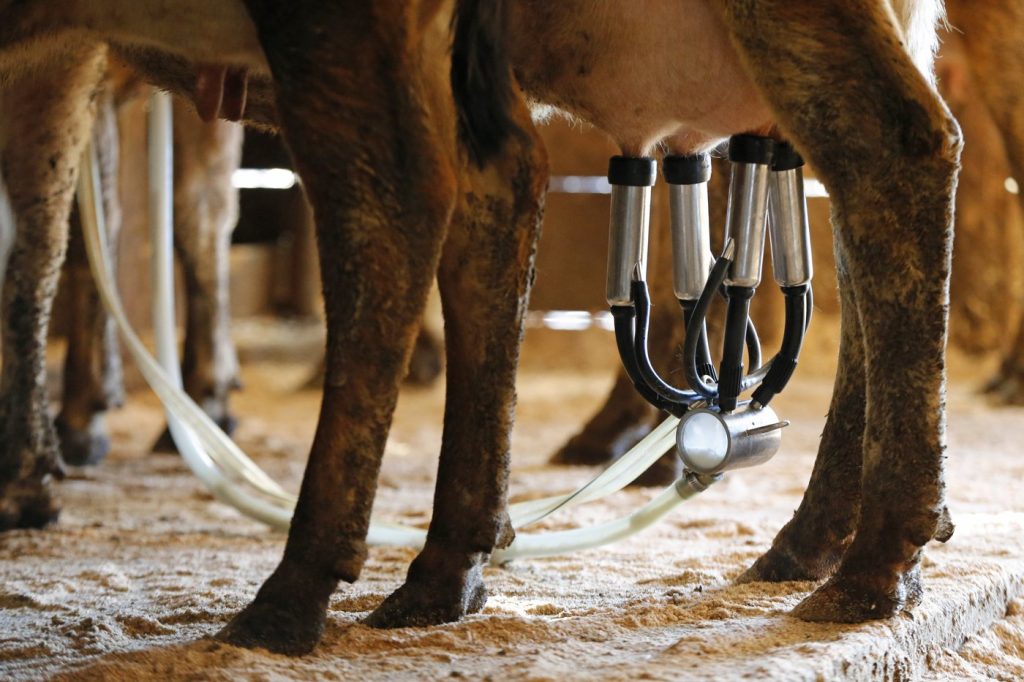TALLAHASSEE, Fla. (AP) – A concerning outbreak of infections has emerged in Florida, where 21 individuals, including six children, have contracted E. coli or campylobacter after consuming raw milk from an undisclosed farm. This alarming situation has prompted public health officials to take action, with seven affected individuals hospitalized, two of whom are currently experiencing severe complications.
According to the Florida Department of Health, it remains unclear whether any of the six infected children, all under the age of 10, are among those being treated in hospitals. Furthermore, the department did not specify the exact number of infections attributed to either E. coli, campylobacter, or both pathogens. Public health authorities have raised significant concerns regarding sanitation practices at the implicated farm, highlighting the need for more stringent health regulations to prevent further infections.
Despite longstanding warnings regarding the health risks associated with consuming unpasteurized products, raw milk appears to be gaining popularity among certain consumers. The Food and Drug Administration (FDA) and the Centers for Disease Control and Prevention (CDC) repeatedly emphasize that raw milk is one of the "riskiest" foods available, increasing the likelihood of serious illnesses and hospitalizations stemming from dangerous bacteria such as campylobacter, listeria, salmonella, and E. coli.
Research has demonstrated that raw milk is significantly more likely than its pasteurized counterpart to cause gastrointestinal illnesses, with potential complications that can escalate to life-threatening kidney failure. Vulnerable populations—such as young children, the elderly, immunocompromised individuals, and pregnant women—are at an elevated risk for severe complications resulting from these infections.
Keith Schneider, a food safety professor at the University of Florida, expressed frustration over the current state of affairs, stating, "We invented pasteurization for a reason. It’s maddening that this is happening." His comments underscore the critical need for enhanced public awareness of the dangers posed by raw milk consumption.
The regulatory landscape surrounding raw milk varies widely across the United States. Some states permit retail sales in stores, while others restrict sales solely to farms, with methods like "cowshares" allowing customers to purchase milk from designated animals. In Florida, the sale and distribution of raw milk for human consumption is illegal. However, some retailers circumvent this prohibition by labeling their products as intended for pet food. Schneider describes this practice as a "wink, wink, nudge, nudge" approach to regulation, highlighting a systemic issue within the enforcement of raw milk laws.
He further emphasized, "Everybody knows that they’re selling it for human consumption," indicating that the public's health may be put at risk due to these loopholes in regulation. Schneider asserted that the occurrence of illness, including serious complications, related to raw milk consumption is "not a question of if, but when." This alarming assertion reinforces the crucial need for attention to safety practices regarding raw milk and the importance of public health guidelines in mitigating the risk of foodborne illnesses.
In conclusion, the outbreak in Florida serves as a reminder of the potential dangers of consuming raw milk. With the increasing popularity of this product and its proven health risks, the need for public health education and tighter food safety regulations has never been more urgent. The intersection of consumer demand and food safety must be navigated carefully to protect the health of all individuals, especially those most vulnerable to severe infections.












